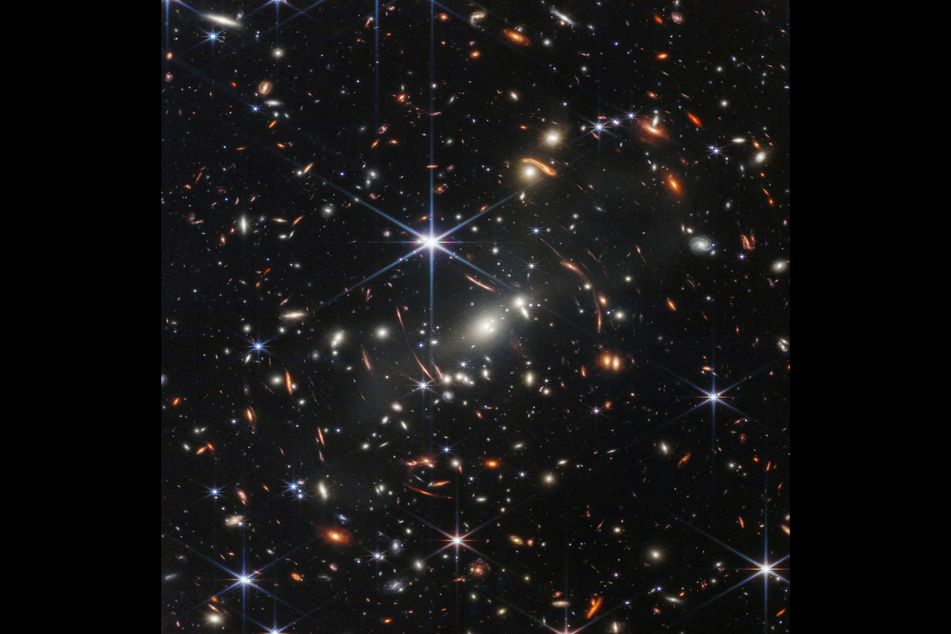NASA shares first full-color image from James Webb space telescope
Greenbelt, Maryland - NASA presented the first full-color image from the James Webb space telescope on Monday, calling it the "deepest and sharpest infrared image of the distant universe to date."

The image showing a cluster of galaxies is a deep field composite showing the galaxy cluster SMACS 0723 as it appeared 4.6 billion years ago, the US space agency said.
President Joe Biden released the image, the first of a set, in a preview event at the White House with Vice President Kamala Harris.
The rest of the telsecope's first full-color images are due to be released on Tuesday. They were selected by representatives of various space agencies involved in the project.
The so-called Carina Nebula, a type of gas cloud located around 7,600 light years away, and the WASP-96 b, a giant gas planet outside our solar system, are among the cosmic objects that can be seen in the images, according to a NASA statement.
The publication of the images marks the beginning of scientific work with the Webb, the largest and most powerful telescope ever launched into space.
The James Webb telescope was launched on December 25 aboard an Ariane launch vehicle from the European Space Agency's Kourou spaceport in French Guiana.
Scientists hope the telescope's images will provide insights into the period immediately after the Big Bang some 13.8 billion years ago.
The Webb took about 30 years to develop and cost around $10 billion. It is the successor of the Hubble telescope, which has been in use for more than 30 years.
Cover photo: REUTERS